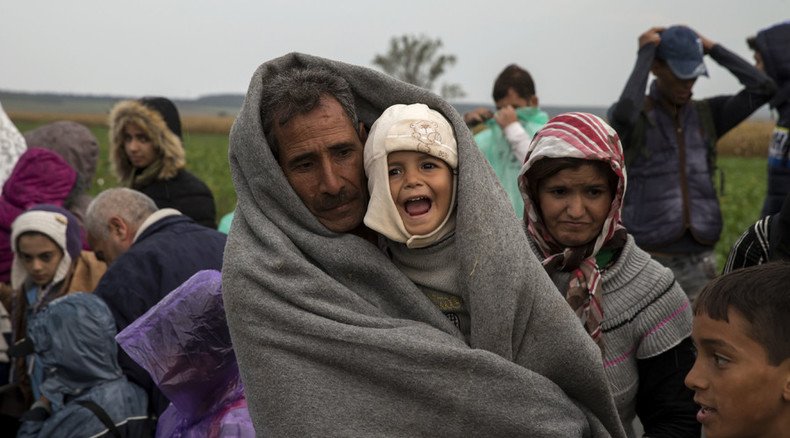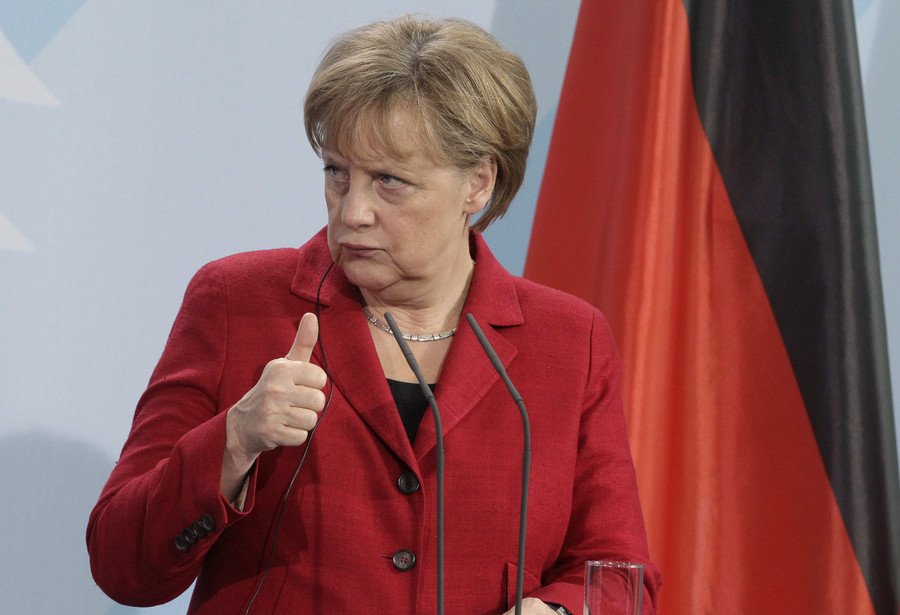Russia’s Syria op ‘forestalled planned humanitarian catastrophe scenario’?

Russia’s intervention in Syria amid the EU migrant crisis has possibly prevented a NATO induced crisis similar to the one in Kosovo, where refuges where used as an excuse for bombing, suggests international affairs commentator Marco Gasic.
A fire broke out Wednesday at one of the largest refugee camps in Slovenia located in the village of Brezice on the Croatian border. Allegedly migrants set the camp on fire because they were not satisfied with conditions there. Slovenian authorities have also asked the EU to help control the influx as more than 12,000 refugees have arrived to the country.
READ MORE: Fire breaks out at Slovenia refugee camp housing thousands (VIDEO)
RT: Should we be listening to migrants and their frustrations over the conditions they find themselves when they come into Europe? For example, we saw them in Slovenia allegedly setting fire to an asylum center because of their treatment.
Marco Gasic: They obviously want us to listen, but there seems to be a certain lack of respect for European institutions in their behavior. They seem to sense a weakness on the part of European leaders as far as letting them in is concerned. And it probably derives from the practically open-ended invitation which Chancellor [Angela] Merkel offered a while back to 800,000 of them to come in. In a sense that began the whole process. And ever since then they’ve sensed an unwillingness for them to be stopped from getting on to a new life which they probably dreamt of even before the war occurred. So they would feel their chance to achieve that new life, and they will be prepared to do what it takes to achieve it.

RT: Slovenia says it now needs more help from the EU. What sort of help might it expect, and what kind of help does it need to help the situation right now?
MG: Obviously it will want some financial assistance in taking open-ended numbers of refugees. But I think that Slovenia most of all would want some clarity as far as the forward direction of travel is concerned. It doesn’t know what’s going to happen, where these people are going to go; what level of intensity of refugee flow will be passing through. And again this all derives from, as I say, Chancellor Merkel’s invitation to the refugees to come in the first place and, also, Turkey’s decision to allow hundreds of thousands of people through from the Syrian side and from the camps of Syria through Turkey into Europe. It could well be that what we’re looking here is a kind of NATO induced crisis, rather like the one in Kosovo in 1999, where refugee flows were used as excuses for bombing. In this case, in the current year, bombing hasn’t yet occurred, unlike in the Kosovo example. Nevertheless, bombing was on the agenda, and it appears that Russian intervention - very strong intervention - has forestalled the humanitarian catastrophe scenario that was being planned...
RT: Some countries have been shutting their borders to migrants. What are the options for the refugees, who are trying to flee warzones, when that happens?
MG: At this point the options are fairly simple: if they can’t get any further from where they are; they stay there or they are trying to smuggle themselves through and through whatever avenue appears possible; or they are trying to go back again towards Croatia and Serbia hoping perhaps to go into the EU via perhaps Romania or somewhere else. So I anticipate that if they are stopped at this point, they will dissipate into various camps, or rather various directions. However, I do believe that they ultimately be allowed to go through Slovenia and forward into Central Europe – and I think that will of course only encourage more to come again.
#Slovenia expands army powers to help police guard border amid refugee crisis - report https://t.co/xjld8V1sw9pic.twitter.com/sTlsinysUW
— RT (@RT_com) October 21, 2015The influx of migrants and refugees may only decrease if EU countries announce they can no longer admit everybody regardless of their background, says Srdja Trifkovic, a Serbian-Bosnian writer on international affairs.
“It really depends on the political will of the key EU countries to stop the influx by announcing that they will no longer be welcoming everybody regardless of their background, regardless of merit of their case. And if the word gets around that the Germans are no longer expecting a million a year or whatever, it might abate,” he said.
In his opinion, the growing anger among Europeans over the situation and the way it’s been tackled by governments is not surprising.
“It would really be preposterous to expect that there will be no reaction from the host populations in spite of the fact that literally hundreds of thousands of culturally alien, and for the most part, inassimilable migrants are arriving without any pretense of democratic dialogue and decision of the people concerned whether they want them or not,” Trifkovic said.
He also added that migrants keep continuously arriving from Turkey “means that Chancellor [Angela] Merkel has not been successful in getting President [Recep Tayyip] Erdogan to cooperate in stopping this influx.” The analyst went on to say that “it is obvious that the Turkish state is actively facilitating the movement of refugees from the camps in the east of the country across 1,000 kilometers of the Anatolian Peninsula to the Turkish Aegean ports where they move on to Greece.”
LISTEN MORE:
The statements, views and opinions expressed in this column are solely those of the author and do not necessarily represent those of RT.












